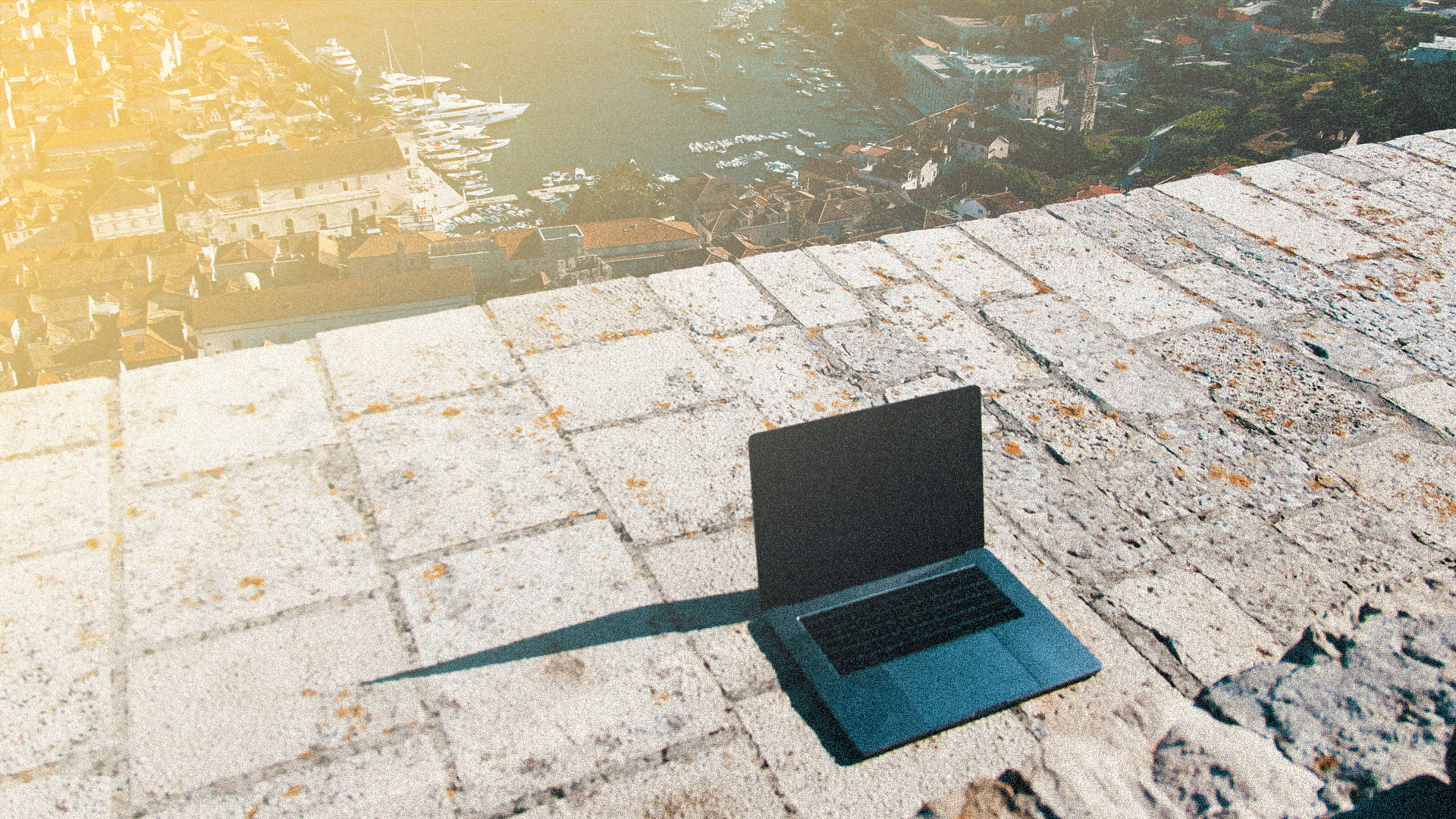Ironically, when the pandemic hit in March of this year, I wasn’t home. I happened to be in California at the time, though I suppose it’s hard for me to know where to call home these days.
After leaving my executive role as CTO for a major media company in 2013, I had become a veteran at life on the go, simultaneously living and working while traveling. What started as taking a year off from corporate life eventually turned into a new lifestyle and career I could never have imagined myself having.
The threat of COVID-19 caused me, like many others, to rethink my next move. However, unlike most, I knew exactly what calls to make, travel reservations to book, and items to pack. While planning a long-term stay at my home in Sayulita, Mexico, I began to consider how life as a digital nomad these past seven years has prepared me to handle remote work-life balance during a pandemic.
Work
As a self-employed executive coach, I’ve been working remotely for the better part of a decade. I’m accustomed to constantly designing and redesigning my work schedule based on my clients, travel plans, and time zones. As a digital nomad, I’ve learned how to optimize my workload around the place I’m in. During the pandemic, with companies being forced to operate remotely, I’m finding that everyone else is being faced with challenges I had to solve years ago.
I’ve watched countless clients struggle to reinvent their day-to-day lives, having had their well-worn routines and infrastructures removed, but astound me in their ability to adapt. My days don’t look too different than those before life on lockdown. Nomadic daily life isn’t so dissimilar to that in quarantine. I’ve always worked online, and for nomadic families, homeschooling is part of the package. Living on the go has made for a smoother transition workwise during this challenging time.
Finances
This pandemic has rapidly brought on a wave of layoffs, furloughs, and reduced incomes for many. People who have been forced to rethink their budgets and sources of income could look to career travelers for a bit of inspiration. Without being dependent on one location or potentially even one job, nomads tend to have a diverse pool of income sources, are part of the gig economy, and have the ability to pivot quickly.
Budget consciousness is a natural byproduct of choosing a nomadic lifestyle. Without any single home base, it’s difficult to ever accumulate the volume of material possessions you might otherwise. Depending on how you travel throughout the year, you may avoid the costs that come from living in one place, like rent, utilities, home repairs, insurance, and car maintenance. The desire to redecorate or nest is reduced because you’re changing your literal scenery often, and physically you’re restricted. Retail therapy doesn’t become an option for nomads who can’t carry all the items that catch our eye.
There’s beauty in being forced into a more minimalist lifestyle that shows up not only in your bank account but also your mental state.
Mindset
Living a less-cluttered physical life has led to an equally uncluttered mind and mental health. Experiences truly become more important than things. Instead of buying new gadgets or clothing to fill a void, exploring new cultures, taking in postcard views, and eating delicious food become the things that satisfy your soul.
Being less geographically tethered also provides your overall mental capacity with greater flexibility. While I see many people panic about transitioning to reducing their lifestyles to match their new pandemic-era incomes, I realized that I’ve already gone through the uncomfortable exercise of making peace with uncertainty. I’ve already learned to navigate unexpected obstacles and adapt to fluctuations in my resources. My resilience muscle is well toned.
Challenges
Nomadic life isn’t all Instagram-enviable poolside work sessions. Though it gets easier the more you do it, it’s a careful process that uproots your life every few weeks or months, while still working full time. Language barriers, health insurance coverage, even managing your mail, and unexpected travel delays are par for the course in the most “normal” of circumstances. With the pandemic, it’s become even more challenging.
Experiences are different than what you imagined pre-COVID-19. It’s sometimes difficult to truly immerse yourself in a culture wearing a mask, from six feet away. Flying is even more restricted and travel plans have to be adjusted according to countries that will let you in, with or without a required quarantine. But it’s all still possible.
This time of year, my husband and I would typically be living in Lisbon, Portugal. With the pandemic, we decided to change course and are making the most of our longer than usual stay at our home in Mexico by getting out and exploring surrounding cities and sights. But my nomadic ways have trained me to problem-solve and adapt, both my plans and expectations.
Seven months into the pandemic, many companies are still operating remotely for the foreseeable future. While you might have once been confined to a cubicle, office, or even location, that’s just not true anymore. Businesses are becoming more comfortable and efficient with a virtual workforce and policies are relaxing.
So take a moment to look around. Do you still need to be paying a premium for rent in a major city? Have you always wanted to travel but could never get away? Whether you’re a full-time employee, self-employed, or planning your next move, without the restriction or demand of being in-person, this could be your moment to shift your work to fit your life, instead of the other way around.
Lisa Kavanaugh is the founder of RebelxLabs.
Recognize your brand’s excellence by applying to this year’s Brands That Matter Awards before the early-rate deadline, May 3.
